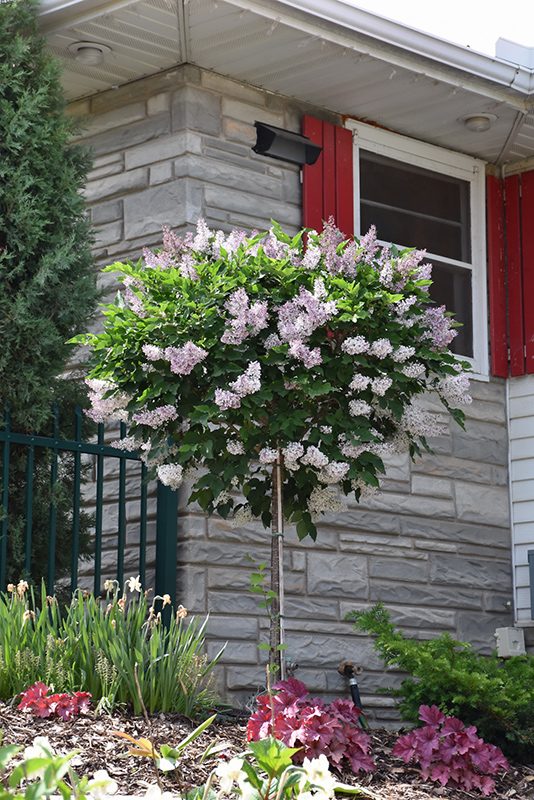>> Home
Miss Kim Lilac (tree form)
Syringa patula 'Miss Kim (tree form)'
Height: 6 feet
Spread: 4 feet
Sunlight:
![]()
Hardiness Zone: 2
Other Names: Manchurian Lilac
Description:
An attractive, compact garden accent tree featuring showy panicles of light lavender-pink flowers in spring and crinkled foliage, impressive fall color for a lilac; fragrance is overwhelmingly spicy
Ornamental Features
Miss Kim Lilac (tree form) is covered in stunning panicles of fragrant lavender flowers with pink overtones rising above the foliage in late spring. The flowers are excellent for cutting. It has dark green deciduous foliage. The pointy leaves turn an outstanding deep purple in the fall.
Landscape Attributes
Miss Kim Lilac (tree form) is a dense deciduous dwarf tree, selected and trained to grow in a small tree-like form with the primary plant grafted high atop a standard. Its relatively coarse texture can be used to stand it apart from other landscape plants with finer foliage.
This is a relatively low maintenance dwarf tree, and should only be pruned after flowering to avoid removing any of the current season's flowers. It is a good choice for attracting butterflies to your yard. It has no significant negative characteristics.
Miss Kim Lilac (tree form) is ideal for use as a garden accent or patio feature, and is recommended for the following landscape applications;
- Accent
- General Garden Use
Planting & Growing
Miss Kim Lilac (tree form) will grow to be about 6 feet tall at maturity, with a spread of 4 feet. It tends to be a little leggy, with a typical clearance of 3 feet from the ground, and is suitable for planting under power lines. It grows at a medium rate, and under ideal conditions can be expected to live for approximately 30 years.
This dwarf tree should only be grown in full sunlight. It is very adaptable to both dry and moist locations, and should do just fine under average home landscape conditions. It is not particular as to soil type or pH. It is highly tolerant of urban pollution and will even thrive in inner city environments. This is a selected variety of a species not originally from North America.
